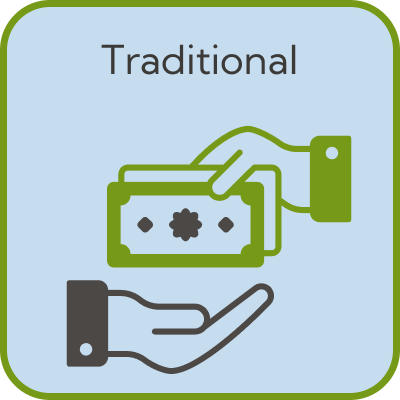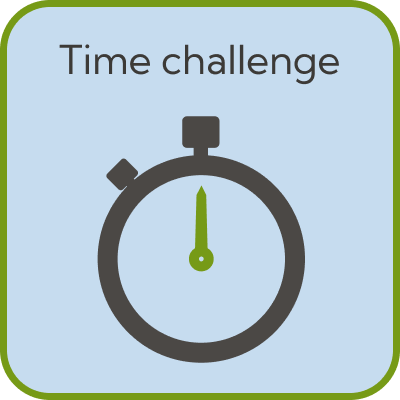Fundraise by participating in Self-organised fastest puzzle-solving challenge!
Self-organised fastest puzzle-solving challenge
Imagine challenging yourself to a self-organized fastest puzzle-solving event, where quick thinking and sharp skills can directly benefit a cause close to your heart. In this activity, you set a goal to solve a series of puzzles — be it jigsaw puzzles, crosswords, or any other type — as quickly as possible, and use your swift solving skills to raise funds for charity.
This form of event is ideal for charitable fundraising because it combines mental challenge with competitive spirit, appealing to a broad audience who appreciate mental agility and problem-solving. It’s not just about the physical prowess; here, intellect and tactics lead the way. This can attract a different demographic of participants and sponsors interested in supporting cognitive skills and education-related causes.
To organize this event effectively, start by choosing puzzles that are both challenging and appeal to a wide audience. You will need to set a clear and measurable goal, like solving a specific number of puzzles within a limited time frame. Make sure to promote your challenge widely across social media, personal networks, and local community boards. Engage potential donors with regular updates on your training progress and insights into the strategies you plan to use, and explain clearly how their donations will help the cause.
In terms of leveraging Sponsivity’s innovative challenge types, both the Time Challenge and Wager Challenge models are perfectly suited for a fastest puzzle-solving challenge. For the Time Challenge, sponsors can pledge donations based on how quickly each puzzle is solved or for beating target times you set before the event starts. For instance, if you solve a complex 1000-piece jigsaw puzzle in under two hours, a higher donation could be triggered.
Alternatively, the Wager Challenge can be used to raise the stakes by setting a preliminary fundraising goal that needs to be met before you tackle a particularly difficult puzzle live or in a recorded session. This model is particularly engaging as it builds anticipation and encourages donors to help you reach the set target to see the challenge come to fruition.
Both strategies are inspiring ways to engage with potential sponsors and maximize fundraising through dynamic and immediate results that capture and hold the interest of your audience. Overall, this quirky challenge not only stimulates the mind but also touches hearts by contributing to worthwhile causes, ensuring that every puzzle piece solved is a step towards positive change.

Sponsivity offers you several ways to raise for Self-organised fastest puzzle-solving challenge


🧠 Mental Challenge – Pushing Limits for a Good Cause
Mental challenges test focus, resilience, and determination, making them a unique and engaging way to fundraise. These challenges often involve problem-solving, endurance under pressure, or personal restrictions, such as memory feats, puzzle marathons, or digital detoxes. Fundraising through mental challenges allows participants to showcase their mental strength and discipline, inspiring supporters to donate.
Why Mental Challenges Work for Fundraising:
- Highly Inclusive: Unlike physical challenges, mental challenges can be attempted by anyone, regardless of fitness level.
- Great for Social Engagement: Challenges like chess marathons, escape room events, or language-learning goals are easy to share and track online.
- Endurance & Dedication: Tasks that test patience and willpower—like 24-hour challenges—demonstrate commitment, motivating donors to give.
- Unique & Entertaining: Creative challenges stand out, making them highly shareable on social media and drawing attention to the cause.
Examples of Mental Challenge-Based Fundraisers:
- Memory Challenge: “I’m memorizing 500 digits of Pi—sponsor me to support dementia research!”
- Endurance Puzzle Challenge: “Help me complete 10,000 Sudoku puzzles in a month for charity!”
- No-Talking or Digital Detox Challenge: “Support my 48-hour silent retreat—every donation helps my cause!”
Mental challenges showcase creativity, discipline, and perseverance, making them a fun and inspiring way to raise money while pushing personal limits.
Set bespoke rewards that suit mental challenge
- Join me in my challenge for 1 day
- Get defeated by me at chess online during the challenge
📅 Self-Organised – Fundraising on Your Terms
Self-organised fundraising challenges put you in control, allowing fundraisers to create a challenge that’s unique, personal, and tailored to their passions. Unlike organised events, self-organised challenges offer complete flexibility—whether it’s a solo endurance test, a creative personal challenge, or a community-driven activity.
Why Self-Organised Challenges Work for Fundraising:
- Full Flexibility: Choose the activity, location, and timing that works best for you, making fundraising accessible and achievable.
- Personal & Meaningful: Custom challenges allow fundraisers to connect with their audience by choosing something significant to them.
- Low-Cost & Inclusive: Without the need for event entry fees or logistics, anyone can participate, making it easy to involve family, friends, or colleagues.
- Perfect for Challenge Chain & Wager Models: Self-organised challenges can inspire others to join in, spreading the impact through viral nominations.
Examples of Self-Organised Fundraisers:
- Personal Running Challenge: “I’ll run 5K every day for a month—support my journey!”
- DIY Fitness Marathon: “I’m doing 1,000 push-ups in a day—every donation pushes me further!”
- Creative Challenge: “I’ll cycle across the country dressed as a superhero—help me hit my fundraising goal!”
Self-organised challenges allow fundraisers to turn their creativity, passions, and dedication into real impact, making it a powerful and accessible way to raise money for a cause.
Set bespoke rewards that suit self-organised event
- Rename the challenge in your honour
- Bring home-baked cookies to the finishline